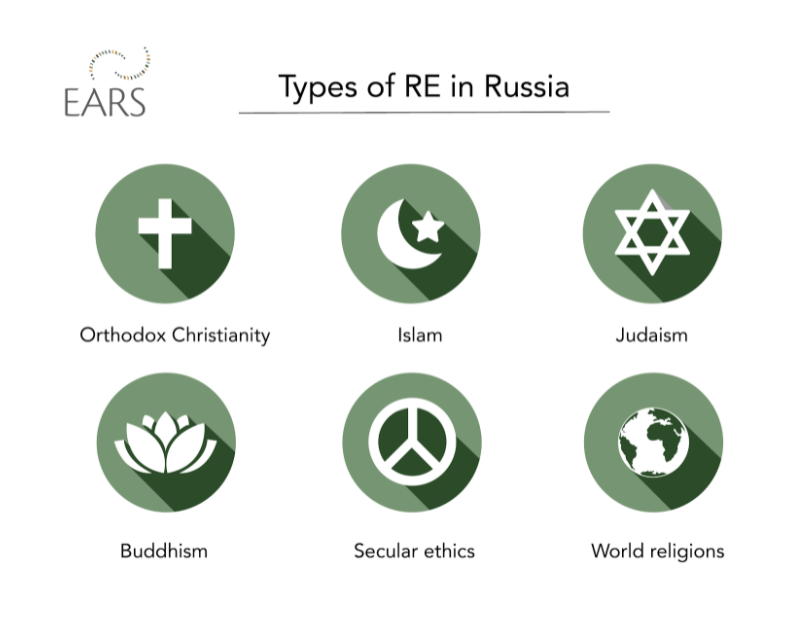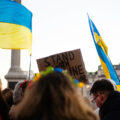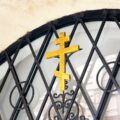From state atheism to religious education
From state atheism to religious education
Although RE has become a compulsory subject in public schools, religious education in Russia remains to be a strongly contested topic. The discussion can be boiled down to a concern about the separation of Church and State, roughly dividing the public opinion into two camps.
This article is part of our series on the role of religion in education across Europe.
After a three-year trial, Russia officially introduced religious education (RE) in September 2012 as a compulsory subject in public schools.[1] The subject is taught in the fourth and fifth grade (ages 9-11), but Patriarch Kirill, the head of the Russian Orthodox Church (ROC), has declared to be in favour of making RE mandatory for grades two through ten.[2]
During the Russian Empire, a strictly Orthodox education in catechism was provided. However, the Russian Revolution in 1917 heralded decades of state atheism, during which all religion was frowned upon, and atheism was propagated in schools.[3] During the Perestroika (the reform program instituted in the mid-1980s, which aimed at restructuring the Soviet economic and political policies), careful steps were taken to revive the relationship between the state and the ROC.[4] In the light of this campaign, the introduction of RE in some schools across the Russian Federation can be seen as a means to attract citizens to the Russian Orthodox Church.[5] However, since the implementation of a Federal Law in 1992 which prescribed that all education had to be secular, the ROC has lobbied for reinstating RE.[6] Although today the ties between Church and State seem to have almost returned to their pre-revolutionary strength, it has taken much deliberation to push through the educational reform in some bureaucratic structures which are still deeply secular.[7]
Religious flavours
In what way do you organise a subject as RE from scratch in a country in which Orthodoxy, which can be seen as the state religion, exists alongside approximately 23,000 recognised religious institutions?[8] The Reformers were faced with the dilemma to either return to something that resembled pre-revolutionary Orthodox catechesis, or instate non-confessional religious schooling similar to those in various European countries.[9] The model that was chosen (‘Foundations of Religious Cultures and secular Ethics’) was a disappointing compromise for the Russian Orthodox Church that had initially pushed for a more or less confessional subject.[10] The current model offers compulsory classes for fourth and fifth graders, but in six religious ‘flavours’ which parents can choose from: Orthodox Christianity, Islam, Judaism, Buddhism, secular Ethics, or world religions.[11]

According to a study from 2014, Russians have increasingly affiliated themselves with the Russian Orthodox Church since the collapse of the Soviet Union. In 2008, 72% of the Russian population identified as Russian Orthodox, while only 18% of the population stated that they did not identify with any religion.[12] However, in 2012, nationwide only one-third of the children took the Russian Orthodox track, while the topic chosen by most parents for their children’s religious education was ‘secular Ethics’.[13] In reaction, the Russian Orthodox Church published an appeal on its official website in which it warned parents that ‘secular Ethics’ is “an atheistic curriculum,” disguised as an ideologically neutral subject. According to the ROC, the material taught in this class is opposed to “the foundations of religious culture,” and therefore to the “spiritual and moral education that has been traditional in Russia.”[14]
Theology in higher education: a contested subject
Similar to religious education in elementary schooling, theology was introduced only recently as a subject in higher education. Since 2015, theology has been taught at 48 institutions of higher education in Russia.[15] However, the decision to accredit theology as an academic discipline incited debates about its scientific status, but also about the separation between church and state. In an open letter to President Putin in July 2007, members of the Russian Academy of Sciences voiced their concerns about the considerations to add theology to the academic curriculum (and introduce religious education in elementary schools), stating that any scientific discipline should operate with “facts, logic, evidence, but by no means faith.”[16]
University cathedral
Meanwhile, on the premises of the 265-year-old Moscow State University, the largest university in Russia, the construction of a 46-metre-high, multi-domed cathedral is to start in 2021.[17] Although the announcements of the constructions were received with little enthusiasm amongst the students, the rector stated that the new cathedral had been requested by more than 2,000 university employees.[18] The church is designed to accommodate 1,000 worshippers and will house the parish premises and the spiritual centre of Moscow State University. A petition for the construction of a Pastafarian instead of an Orthodox church has already been signed nearly 5,000 times.[19]
Religious vs secular = Church vs State?
Although RE has become a compulsory subject in public schools, and theology has been accredited to an academic status, religious education in Russia remains to be a strongly contested topic in the public debate. The discussion can be boiled down to a concern about the separation of Church and State, roughly dividing the public opinion into two camps. While the proponents profess that an Orthodox upbringing is fundamental to the sustenance of the Russian culture and mentality, the adversaries are of the opinion that RE in schools presents a danger to the development of independent and conscientious individuals through religious indoctrination.[20] For now, the demarcations between ‘secular’ and ‘religious’ might be as obscure as those between ‘Church’ and ‘State’, and – as one author aptly remarks – unless there is a consensus on what ‘secular’ actually means, its interpretation and implementation will continue to be very different in each specific case.[21] [22]
Our team of analysts conducts research on topics relating to religion and society. In April, May and June 2021, we are focusing on the subject of education. Find out more on the EARS Dashboard.
[1] Religious Education as a Compulsory Subject in Russian Public Schools, p. 137; Примат веры – В российских школах теперь существует две версии происхождения человека
[2] Religious Education in Russia: Inter-Faith Harmony or Neo-Imperial Toleration?, p. 117.
[3] Revelations from the Russian Archives: ANTI-RELIGIOUS CAMPAIGNS
[5] Religious Education as a Compulsory Subject in Russian Public Schools, p. 137.
[6] Religious education in Russia: a comparative and critical analysis, pp. 194-195.
[7] Russia introduces mandatory religion class for all 4th graders
[8] In 2007, see Freedom of religion in Russia
[9] Religious education in Russia: a comparative and critical analysis, p. 195.
[10] Ibid.
[11] Russia introduces mandatory religion class for all 4th graders
[12] Russians Return to Religion, But Not to Church
[13] Russia introduces mandatory religion class for all 4th graders
[14] НУЖНА ЛИ ШКОЛЕ «СВЕТСКАЯ ЭТИКА»? Адресуется всем православным учителям и родителям
[15] Теология в современном российском академическом пространстве, pp.229-230.
[16] Открытое письмо десяти академиков РАН президенту Российской Федерации В.В. Путину
[17] Grand Orthodox Cathedral Planned for Moscow State University Campus
[18] Строительство нового храма при МГУ начнется в 2021 году
[19] Православный храм при МГУ сравнили с Диснейлендом и обвинили в сказочности
[20] Religious Education as a Compulsory Subject in Russian Public Schools, p. 138.
[21] Idem, p. 139.
[22] All translations from Russian are made by the author.






